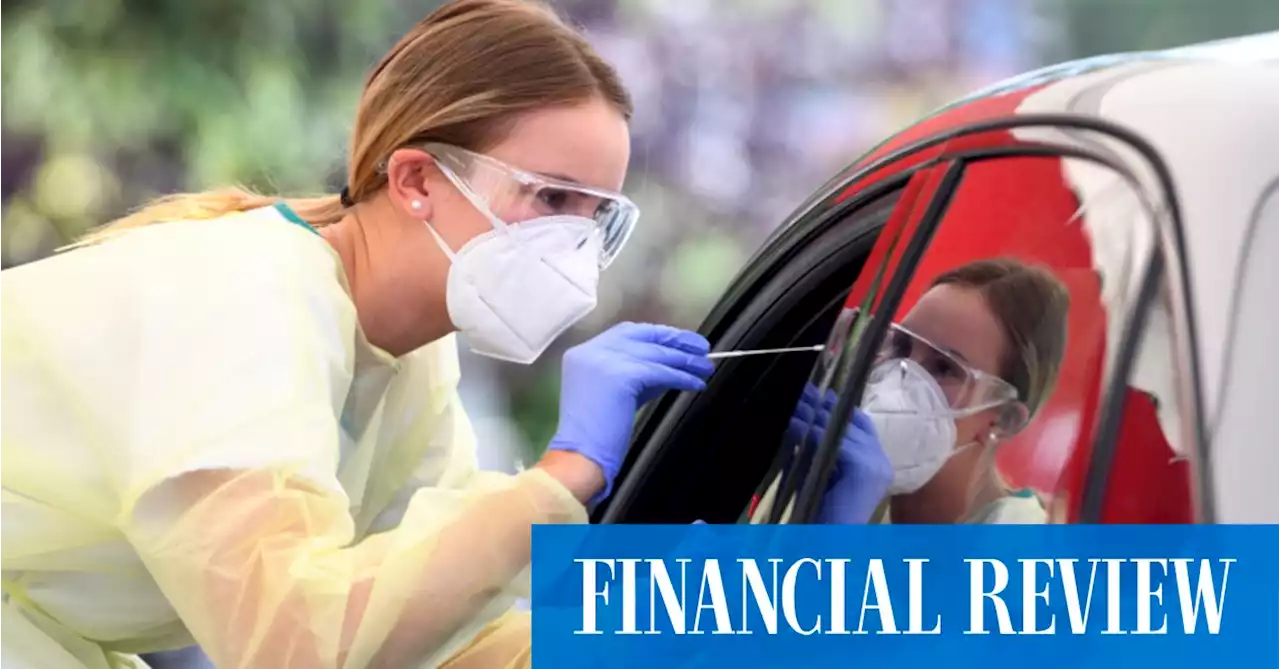The government announced on Monday the mandatory digital “itinerary card” which has been a key tool in the fight against COVID-19 for two and a half years would be switched off immediately.
China has abolished a controversial tracking application which has been used to monitor citizens’ movements during the pandemic, in the latest sign of Beijing’s relaxation of some of the world’s most stringent pandemic controls.
The system’s elimination comes after three years of lockdowns, travel restrictions and quarantines on those moving between provinces and cities, mandated testing, and requirements that a clean bill of health be shown to access public areas.
Doctors and nurses in at least one Beijing hospital have been asked to keep reporting for duty even if they’ve caught COVID-19, if their symptoms are mild, said a medical worker, while healthcare staff in another hospital in the city’s downtown area have been summoned back to work from holiday, according to another.
Most Chinese people seek care from public hospitals even for minor ailments, as their expenses will be reimbursed with state medical insurance that covers over 95 per cent of the 1.4 billion population. Meanwhile, urban elites with private insurance are more likely to go to private hospitals for relatively limited services.
Chinese airlines and travel-related stocks rose on Monday even as the broader benchmarks drop, though investors are primed for market upheaval in 2023 as the country charts its reopening path.
Philippines Latest News, Philippines Headlines
Similar News:You can also read news stories similar to this one that we have collected from other news sources.
 Australia to move away from ‘COVID exceptionalism’ in 2023 planAustralians will need a doctor’s referral for a PCR test at a private pathology clinic from next year, but will still be able to get tests at state-run clinics and hospitals.
Australia to move away from ‘COVID exceptionalism’ in 2023 planAustralians will need a doctor’s referral for a PCR test at a private pathology clinic from next year, but will still be able to get tests at state-run clinics and hospitals.
Read more »
 The big changes coming to COVID-19 testing in 2023Australians will need no longer be able to line-up ad receive a free PCR test on the spot from next year, as the government changes its strategy to deal with the pandemic.
The big changes coming to COVID-19 testing in 2023Australians will need no longer be able to line-up ad receive a free PCR test on the spot from next year, as the government changes its strategy to deal with the pandemic.
Read more »
 Australia to move away from ‘COVID exceptionalism’ in 2023 planAustralians will need a doctor’s referral for a PCR test at a private pathology clinic from next year, but will still be able to get tests at state-run clinics and hospitals.
Australia to move away from ‘COVID exceptionalism’ in 2023 planAustralians will need a doctor’s referral for a PCR test at a private pathology clinic from next year, but will still be able to get tests at state-run clinics and hospitals.
Read more »
 Doctors warn PCR changes could mean fewer COVID-19 testsDoctors and pathologists say the new referral requirement for PCR testing will disadvantage vulnerable people and leave Australia reliant on inaccurate rapid tests.
Doctors warn PCR changes could mean fewer COVID-19 testsDoctors and pathologists say the new referral requirement for PCR testing will disadvantage vulnerable people and leave Australia reliant on inaccurate rapid tests.
Read more »
 Expiry of COVID funding raises fears of hospital service cutsThe federal government’s National Partnership on COVID-19 Response payments are due to expire on January 1.
Expiry of COVID funding raises fears of hospital service cutsThe federal government’s National Partnership on COVID-19 Response payments are due to expire on January 1.
Read more »
 'A difficult one': Albanese opens up about second COVID diagnosisThe Prime Minister said he was 'feeling much better' after a 'difficult' few days following his COVID-19 diagnosis but would 'take it a little bit easy' before heading to Canberra after Parliament was recalled.
'A difficult one': Albanese opens up about second COVID diagnosisThe Prime Minister said he was 'feeling much better' after a 'difficult' few days following his COVID-19 diagnosis but would 'take it a little bit easy' before heading to Canberra after Parliament was recalled.
Read more »
